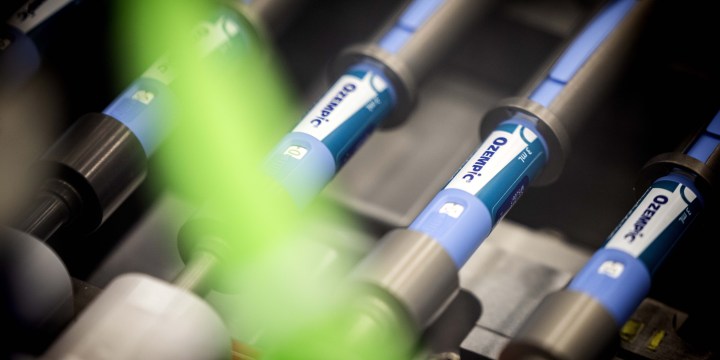BOGUS DRUG
Regulator warns about fake Ozempic on the SA market

Ozempic is in short supply worldwide, so if you see an ad for the drug, or its ‘generic’, it’s likely to be a fake — and potentially dangerous.
If it’s not sold by Novo Nordisk South Africa, it’s not in the country legally and is highly likely to be a counterfeit product.
That’s the warning from the South African Health Products Regulatory Authority (Sahpra), which says it has been alerted to the presence of falsified Ozempic products being sold in the country, with many widely available not only on Facebook Marketplace and other platforms, but also hawked on radio.
Ozempic/semaglutide — a treatment for type 2 diabetes — has become a blockbuster drug after being associated with weight loss.
It is taken as a weekly injection to manage blood glucose levels and is also widely used as an off-label weight-loss treatment, which has caused a shortage of the medication.
The drug’s manufacturer, Novo Nordisk, has achieved runaway success with Ozempic and Wegovy, which are both injectables of semaglutide.
Novo Nordisk is Europe’s most valuable company by market cap.
In a press statement, Sahpra says it is aware of advertisements for unauthorised Ozempic/semaglutide-containing products that are being disseminated through radio stations and social media platforms.
It says consumers should be wary of products that are said to be Ozempic (semaglutide) because the only legal distributor of the drug, Novo Nordisk South Africa, has confirmed that there is a national shortage of Ozempic stock, which means diabetic patients, for whom it was originally developed, have limited access to the life-saving treatment.
“This may have created an opportunity for falsified/counterfeit products flooding the market claiming to be Ozempic and being used off-label for weight loss. Consumers should be wary of online offers for products claiming to be Ozempic or semaglutide.”
In South Africa, Ozempic is a Schedule 4, prescription-only medicine, which is only for the treatment of type 2 diabetes mellitus in adults. Sahpra has not authorised or registered Ozempic for weight loss, but off-label dispensing is believed to be rife.
Fake or counterfeit
No generic versions of Ozempic are currently lawfully manufactured, so products claiming to contain semaglutide are likely to be fake or counterfeit.
Sahpra says medicines that are bought outside the legal supply chain may not contain any active ingredient or could contain dangerous levels of the active ingredient. They may furthermore contain other active ingredients such as insulin instead of semaglutide, harmful inactive ingredients, or may be non-sterile and contaminated with microbes, and therefore not suitable for injecting.
“Protecting the health of South Africans is top of mind for the regulator. The scourge of unregistered, substandard, and falsified medicines on the market is a serious health risk for the public. Sahpra is listening to the public’s concerns, and we have an ongoing investigation into these falsified Ozempic and unregistered semaglutide-containing products,” said Sahpra’s CEO, Dr Boitumelo Semete-Makokotlela.
Fake Ozempic has caused concern elsewhere. In Austria, health authorities have reported that counterfeit weight-loss pens have reached patients and in the UK, a small number of patients have been hospitalised.
Euronews, quoting Austria’s Federal Office for Safety in Health Care, reports that hypoglycaemia and seizures were reported as serious side effects of using the falsified Ozempic pens which may have contained insulin instead of the active ingredient semaglutide.
“Due to the untested quality of the counterfeit drug, possible impurities and unknown ingredients, these counterfeits can also be life-threatening,” the Austrian agency said.
UK regulators warned they had “received reports of a very small number of people who have been hospitalised after using potentially fake weight-loss pens”.
Hospitalised patients have presented with serious side effects, including hypoglycaemic shock and coma.
The UK Medicines and Healthcare products Regulatory Agency has seized “369 potentially fake Ozempic pens since January 2023”, according to another report, saying there had been reports of counterfeit Saxenda pens obtained by consumers. DM
















 Become an Insider
Become an Insider
Comments - Please login in order to comment.